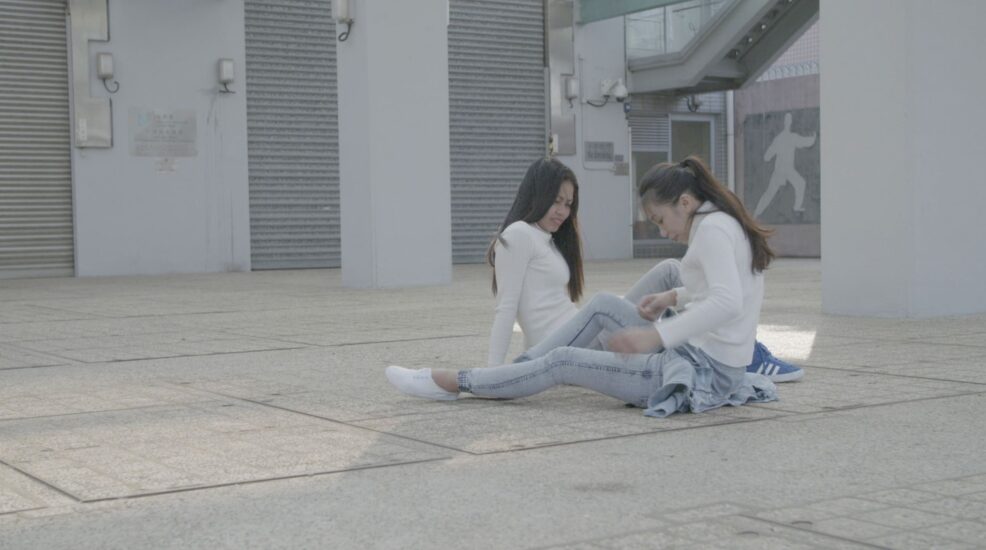Screening & Discussion: Cinema In-Between with Julian Ross, Semâ Bekirović and Stephanie Comilang

Screening & Discussion: Cinema In-Between
with Julian Ross, Semâ Bekirović and Stephanie Comilang.
Cinema is often discussed in simplified terms based on national cinema, industry and genre. But cinema is hybrid: it has always been and is becoming increasingly so. The discussion between Semâ Bekirović and Julian Ross will explore the cinema in-between: between art and film; between different national contexts; and between genres, with a focus on science-fiction and documentary.
The evening starts at 19.00 with a screening of Once an Alien by Semâ Bekirović, followed (at 20.30) by the discussion and concluded with a screening of Lumapit Sa Akin, Paraiso (Come to me Paradise) 2016) by Stephanie Comilang.
About the speaker:
Julian Ross is a British-Japanese researcher, curator and writer based in Amsterdam. He is an Assistant Professor at Leiden University Centre for the Arts in Society, a film program advisor for IDFA, and co-organiser of Doc Fortnight at The Museum of Modern Art, New York, with Sophie Cavoulacos. He was a programmer at International Film Festival Rotterdam, Locarno Film Festival and guest programmer at Singapore International Film Festival. His curatorial work has been presented at Tate Modern, Art Institute of Chicago, e-flux Video & Film, Kunsthal Rotterdam, Eye Filmmuseum, Tokyo Photographic Art Museum, Harvard Film Archive and British Film Institute.
About the artist:
Stephanie Comilang (Toronto, 1980) is a Filipina-Canadian artist living and working between New York and Berlin. With a focus on the migrant experience, one capable of reducing people to anonymous individuals living and working in unstable elsewheres, Comilang considers the growing disparity between the human and the global. Through a genre she terms “sci-fi documentary,” Comilang creates films whose narratives are driven by multiple voices and points of view to consider how culture and society engage with such salient aspects of the globalized world as mobility, capital and labor.
The intimate narrative and filmic devices Comilang employs cause her films to fit not so neatly into either category of that hybrid definition—they feel too possible to be sci-fi, too close to be documentary, and instead carry something of the imagistic epistolary or confessional.
Her work has been shown at Transmediale Festival, Berlin; Hamburger Bahnhof; Tai Kwun Hong Kong; International Film Festival Rotterdam; Tate Modern; Asia Art Archive in America, New York; Julia Stoschek Collection and Haus der Kunst. She was awarded the 2019 Sobey Art Award, Canada’s most prestigious art prize for artists 40 years and younger.
About the documentary:
“On a gloomy Sunday in Hong Kong, Paradise calls them. Or rather, they call home, and she is Paradise. They gather once a week, coming together to transmit messages with smartphones, the strength of their signal intensifying as their numbers swell. Stephanie Comilang’s 2016 film Lumapit sa Akin, Paraiso [Come to me, Paradise] tells the story of a homeland bereft of its inhabitants, who have left in search of livelihoods elsewhere. Their guardian is Paradise, and she watches her kindred lovingly from above. Paradise is cast in her role by way of a drone who scans the horizon for her kin, narrating her thoughts to us alternately in English and Filipino (Comilang’s mother).”
Will Davis.
http://www.cometomeparadise.com/.
Image: still Lumapit Sa Akin, Paraiso (Come to me Paradise) by Stephanie Comilang. Courtesy Chertlüdde, Berlin.